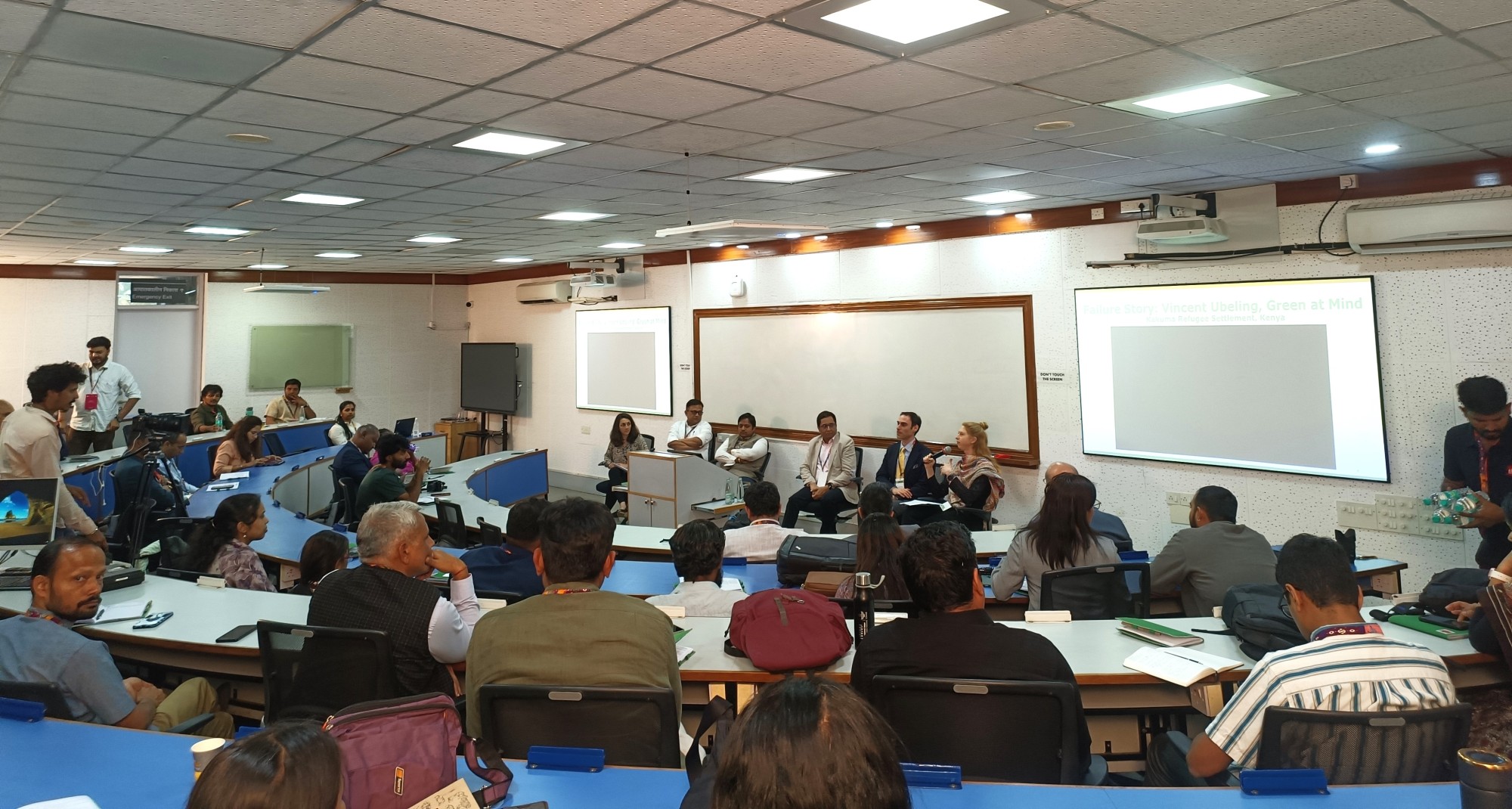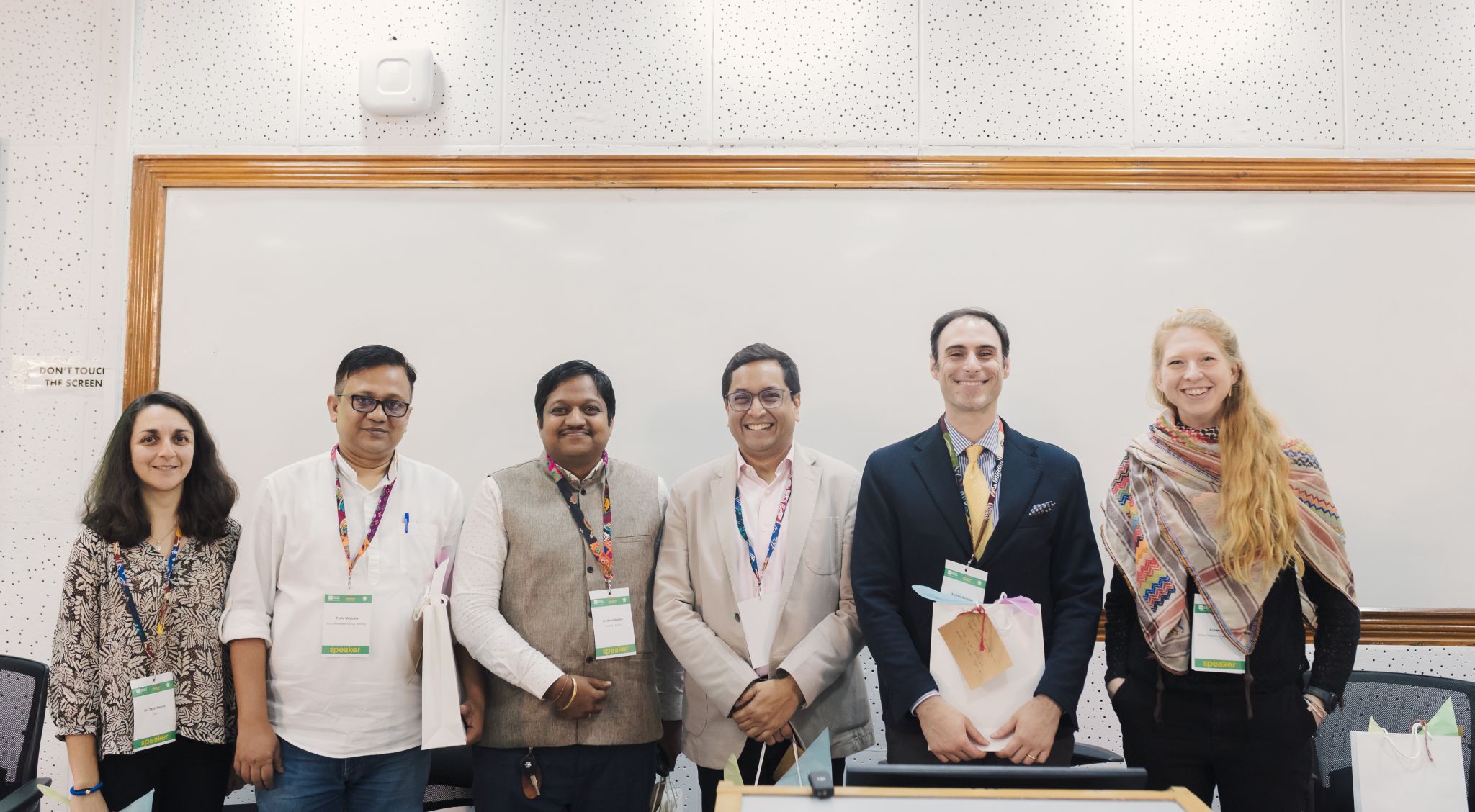In this section
In this sectionA candid discussion on the structural, non-technical barriers that have prevented humanitarian projects from achieving their potential, and unaddressed, will continue to do so

Innovation Norway and GPA session at Impact/Failure 2025
Sustainable Development Goal 7 aims for universal access to clean, sustainable energy for all by 2030, yet there remains a significant oversight when it comes to addressing the energy needs in humanitarian settings[1]. Humanitarian energy, which refers to energy sources “in contexts of displacement, to meet the energy needs of people in camps and urban settings, self-settled refugees, host communities, and internally displaced people”[2], is a nascent area of academic research and practitioner programming.
There is a critical gap in documented knowledge about the humanitarian energy landscape and the extent to which different approaches have thus far succeeded or failed. Much of the work to date has focused on energy costs, data, design of solutions, and solar technologies, but has little engagement with topics such as technical capacity building, innovation, governance, and economic analysis of humanitarian energy systems[3]. This has implications for the scalability and sustainability of energy access solutions in humanitarian settings, where interventions tend to be deployed based on free distribution rather than market-based methods[4],[5]. Such ad hoc approaches have caused poor energy outcomes in humanitarian settings worldwide, with most displaced communities using unimproved, unsafe cooking fuels, and experiencing an overall lack of access to reliable electricity sources[6].
In response to these challenges, Innovation Norway and the GPA have commissioned a report aiming to improve the efficiency and effectiveness of humanitarian energy interventions by learning from previous successes and failures. The project kicked off in January 2025 and will be conducted by a team of independent consultants led by Dr. Tash Perros.
As part of the project launch, the team hosted a panel on humanitarian lessons learned on the 6th of February 2025 at SELCO Foundation’s Impact/Failure Conclave in Bangalore. The Conclave first ran in 2018 and that brings together philanthropists, multilateral donors, grassroots organisations and academics to share lessons in the international development sector.
The session began with pre-recorded videos of two relevant case studies:
- Vincent Ubeling, Founder of Green at Mind, discussed his experiences with a briquette cookstove project in Kakuma, Kenya. Despite ambitious plans to distribute tens of thousands of stoves, the project fell well short of the target as the stoves were unaffordable for the target market and the briquettes, made from human waste, were culturally unacceptable.
- Ahmad Ibrahim Ahmad, Associate Researcher at UNITAR, shared his experiences with a solar-powered borehole in Jere, Nigeria. Though thousands relied on the borehole for water, inadequate maintenance provisions and a lack of local community handover rendered it non-functional much of the time.
Following these case studies, a panel discussion featured diverse voices from across the humanitarian energy sector:
- Mr G Shandeepan, Senior Director at Doctors for You, discussed inadequate electricity infrastructure delayed the mobilisation of COVID-19 responses in hospitals and testing centres in 2020. Doctors For You learned from this experience and now work directly with local government to ensure there is adequate energy supply in place before embarking on projects.
- Mr Jamal Safiulla, Director of Asia Pacific Region, Access to Energy at Schneider Electric, emphasized the need for collaboration among humanitarian partners to share expertise, and the important role of local repair and maintenance services to ensure project longevity.
- Aimee Jenks, Strategy and Partnerships Lead, GPA Coordination Unit at UNITAR, highlighted her experiences in electronic waste management and LPG distribution in Cox’s Bazaar, Bangladesh, where informal private sector actors played a critical role in providing long-term maintenance services to ensure these essential products lasted their intended lifetime.
- Andrea Arricale, Energy Specialist Consultant at The World Bank, explored the necessity of structuring incentives between the private sector, end users and donors to balance affordability against sustainability. He noted that Results Based Finance can improve energy access by tying payments to long-term product performance.
- Fazle Muztaba, Founder & Director, Envo Renewable Energy Services, spoke about his experiences providing humanitarian relief to remote communities in North-Eastern India, detailing how solar lanterns on boats enabled his organisation to conduct overnight rescue operations during devastating floods. He observed how short-term funding cycles undermine long-term sustainability and erode community trust.
The session highlighted the way that energy access underpins a wide range of humanitarian operations – from medical diagnostics through to emergency rescue – and the tensions that exist between providing short-term relief and long-term investments. A common theme that emerged was the structural, non-technical barriers that prevent humanitarian projects from reaching their full potential, including short-term funding cycles and procurement bottlenecks.
The wider Conclave revealed a strong appetite for sharing failures and learnings between donors and practitioners, but the topic requires sensitive treatment. There is a growing need for standardised methods to capture and assimilate learnings, as well as for safe spaces where honest reflections can be shared. Our project aims to address this need by developing a structured, standardised process and template for donors and implementation partners to systematically learn from humanitarian energy failures.
We would like to thank the SELCO Foundation for hosting such a progressive event and to our panellists and video contributors for sharing their experiences. We look forward to engaging with stakeholders across the humanitarian energy sector to drive better, more sustainable outcomes for displaced communities worldwide.

Dr Tash Perros, G Shandeepan, Jamal Safiulla, Fazle Muztaba, Aimee Jenks, Andrea Arricale.
This blog was written by Dr Tash Perros, Institute for Sustainable Resources (ISR). University College London
[1] Haselip, James A., and Sarah Rosenberg-Jansen. "Critical concepts and research needs in humanitarian energy." (2021).
[2] Al-Kaddo, H., and S. Rosenberg-Jansen. "Definitions and Differences: The Evolving Space of Energy Access in Humanitarian Energy." Briefing Paper 3 (2021), p. 6.
[3] Rosenberg-Jansen, Sarah. "The emerging world of humanitarian energy: A conceptual research review." Energy Research & Social Science 92 (2022): 102779.
[4] Gunning, Rebecca. The current state of sustainable energy provision for displaced populations: an analysis. London, UK: Chatham house, 2014.
[5] Bellanca, Raffaella. Sustainable energy provision among displaced populations: policy and practice. London: Chatham House for the Royal Institute of International Affairs, 2014.
[6] GPA, The State of the Humanitarian Energy Sector: Challenges, Progress and Issues in 2022 (Geneva: UNITAR Publishing, 2022), https://www.humanitarianenergy.org/assets/resources/SOHES.pdf.
Last updated: 25/03/2025
